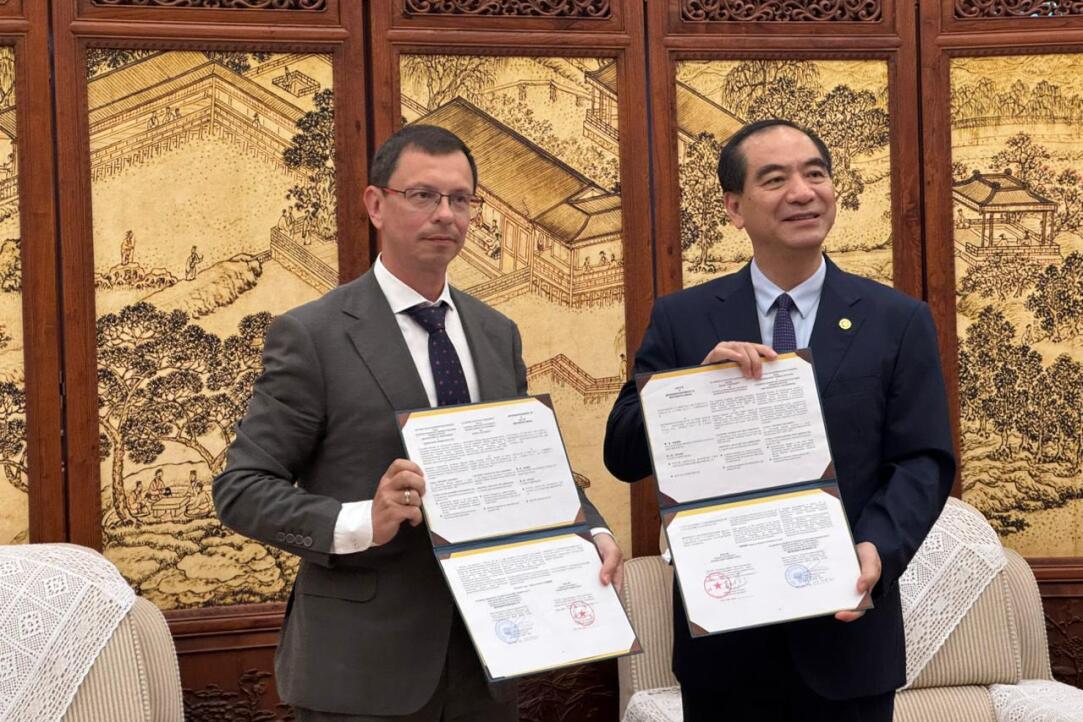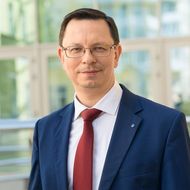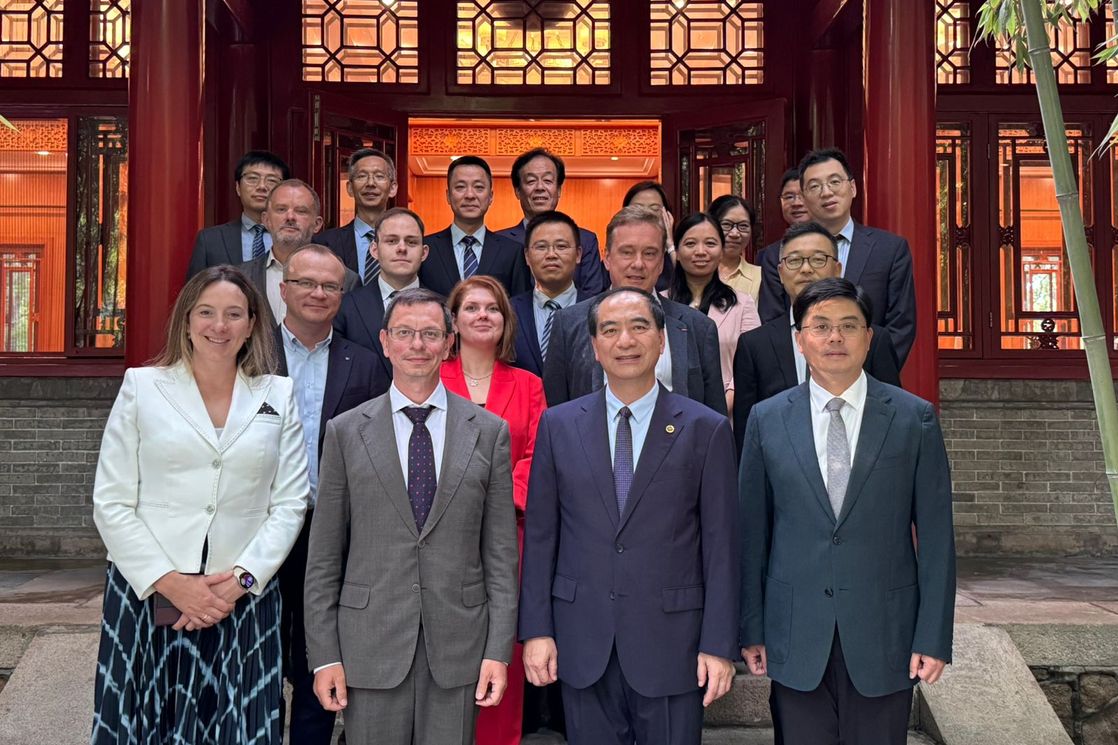HSE and China’s Top Universities to Launch Large-Scale Research and Education Projects

As part of the official visit of Russian President Vladimir Putin to the People’s Republic of China, the HSE delegation led by Rector Nikita Anisimov concluded new cooperation agreements with major Chinese universities. The agreements are designed to expand bilateral partnerships in education, science, and cultural exchange.
During the visit, the HSE University delegation met with the leadership of Tsinghua University, Peking University, and Beijing University of Technology, China’s top scientific and educational centres.

HSE Rector Nikita Anisimov
‘The strong overcome obstacles, and the wise overcome the entire journey. Cooperation with leading Chinese universities not only opens up new horizons in scientific research and knowledge exchange for Russian universities but also reinforces our position in the international educational space, serving as a key component of humanitarian cooperation between the Russian Federation and the People’s Republic of China. Together with our Chinese partners, today we took another important step towards mutual progress and prosperity.’
During the negotiations with our Chinese partners, two key agreements were signed. The first agreement with Tsinghua University focuses on the development of joint projects in the field of biology, ranging from molecular and computational neuroscience to AI-assisted big data analysis. This includes the formation of research groups, preparation of research publications, organization of internships for undergraduates and doctoral students, as well as holding of scientific and educational events. HSE doctoral students will have the opportunity to take internships at Tsinghua, while undergraduates will gain access to new academic mobility formats. The two universities also plan to launch dual degree programmes.
The academic exchange agreement signed with Peking University provides for an annual exchange of undergraduate and doctoral students. This document stipulates the procedures for selecting and assisting participants, their accommodation, administrative and visa support, and academic integration at the host institution. The agreement was published on the Kremlin website as one of the documents signed following the talks between the leaders of Russia and China.

In addition, during their visit, HSE representatives held separate meetings with Peking University units—in particular, with the School of Physics and the School of Management. They discussed the prospects for launching joint educational programmes, developing research initiatives, and participating in international grant competitions. The meetings were attended by HSE Vice Rector Victoria Panova, HSE MIEM Vice Rector and Director Dmitry Kovalenko, HSE MIEM Professor Andrey Vasenko, Dean of the HSE Faculty of Computer Science Ivan Arzhantsev, and Dean of the HSE Faculty of World Economy and International Affairs Anastasia Likhacheva.
The development of humanitarian cooperation and cultural exchange was among the key topics discussed at all the venues. The parties expressed interest in expanding programmes for learning Chinese in Russia and Russian in China, supporting youth initiatives and deepening academic dialogue between university communities.
HSE representatives also met with the university’s students and graduates studying or working in China. During their informal conversation, they shared experiences of participating in academic mobility programmes, talked about their professional plans, and discussed opportunities for future joint projects.
See also:
HSE Tops Ranking of Universities Participating in Priority 2030 Programme
The Russian Ministry of Science and Higher Education has published an updated list of participants in the Priority 2030 programme. A total of 106 universities will receive support this year. HSE University was included in the first group and topped the ranking.
‘Keep Working, Keep Publishing—Consistency Matters’
Ziyuan Zhu, from Beijing, China, is an international PhD student at the Institute for Public Administration and Governance at HSE University in Moscow. In this interview with the HSE News Service, Ziyuan talks about how studies can influence one’s outlook on life, comparing public service models in different countries, and why being a Chinese student in Russia is advantageous in research.
HSE Psycholinguists Launch Digital Tool to Spot Dyslexia in Children
Specialists from HSE University's Centre for Language and Brain have introduced LexiMetr, a new digital tool for diagnosing dyslexia in primary school students. This is the first standardised application in Russia that enables fast and reliable assessment of children’s reading skills to identify dyslexia or the risk of developing it. The application is available on the RuStore platform and runs on Android tablets.
HSE Scientists Optimise Training of Generative Flow Networks
Researchers at the HSE Faculty of Computer Science have optimised the training method for generative flow neural networks to handle unstructured tasks, which could make the search for new drugs more efficient. The results of their work were presented at ICLR 2025, one of the world’s leading conferences on machine learning. The paper is available at Arxiv.org.
Under a Blooming Magnolia: How Russian and Chinese Scientists Create Solar Cells of the Future
Schola continues to introduce the winners of the International Academic Cooperation competition. In today's issue, Professor Andrey Vasenko, Deputy Head of the Scientific and Educational Laboratory of Quantum Nanoelectronics at Tikhonov Moscow Institute of Electronics and Mathematics (MIEM), speaks about the joint project between his laboratory and the Peking University research team— ‘Engineering of highly efficient and stable perovskite solar cells.’
Physicists Propose New Mechanism to Enhance Superconductivity with 'Quantum Glue'
A team of researchers, including scientists from HSE MIEM, has demonstrated that defects in a material can enhance, rather than hinder, superconductivity. This occurs through interaction between defective and cleaner regions, which creates a 'quantum glue'—a uniform component that binds distinct superconducting regions into a single network. Calculations confirm that this mechanism could aid in developing superconductors that operate at higher temperatures. The study has been published in Communications Physics.
Neural Network Trained to Predict Crises in Russian Stock Market
Economists from HSE University have developed a neural network model that can predict the onset of a short-term stock market crisis with over 83% accuracy, one day in advance. The model performs well even on complex, imbalanced data and incorporates not only economic indicators but also investor sentiment. The paper by Tamara Teplova, Maksim Fayzulin, and Aleksei Kurkin from the Centre for Financial Research and Data Analytics at the HSE Faculty of Economic Sciences has been published in Socio-Economic Planning Sciences.
Graduate School of Business MBA Students Take Part in Offsite Module in China
MBA students of the HSE Graduate School of Business HSHSE have recently completed the international component of their studies at the School of Economics and Management at Tsinghua University. The module focused on developing business through innovation. The participants discussed the impact of new technologies on corporate structures and visited companies operating in robotics and renewable energy.
Larger Groups of Students Use AI More Effectively in Learning
Researchers at the Institute of Education and the Faculty of Economic Sciences at HSE University have studied what factors determine the success of student group projects when they are completed with the help of artificial intelligence (AI). Their findings suggest that, in addition to the knowledge level of the team members, the size of the group also plays a significant role—the larger it is, the more efficient the process becomes. The study was published in Innovations in Education and Teaching International.
New Models for Studying Diseases: From Petri Dishes to Organs-on-a-Chip
Biologists from HSE University, in collaboration with researchers from the Kulakov National Medical Research Centre for Obstetrics, Gynecology, and Perinatology, have used advanced microfluidic technologies to study preeclampsia—one of the most dangerous pregnancy complications, posing serious risks to the life and health of both mother and child. In a paper published in BioChip Journal, the researchers review modern cellular models—including advanced placenta-on-a-chip technologies—that offer deeper insights into the mechanisms of the disorder and support the development of effective treatments.


